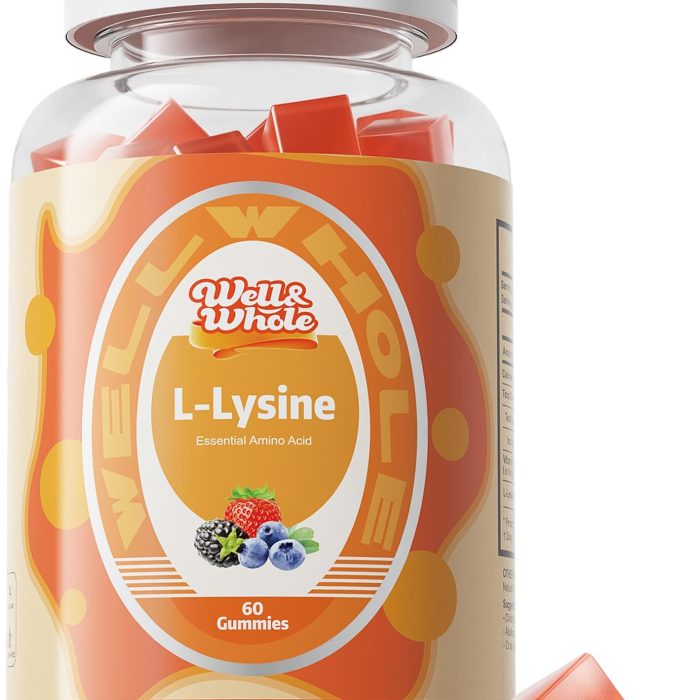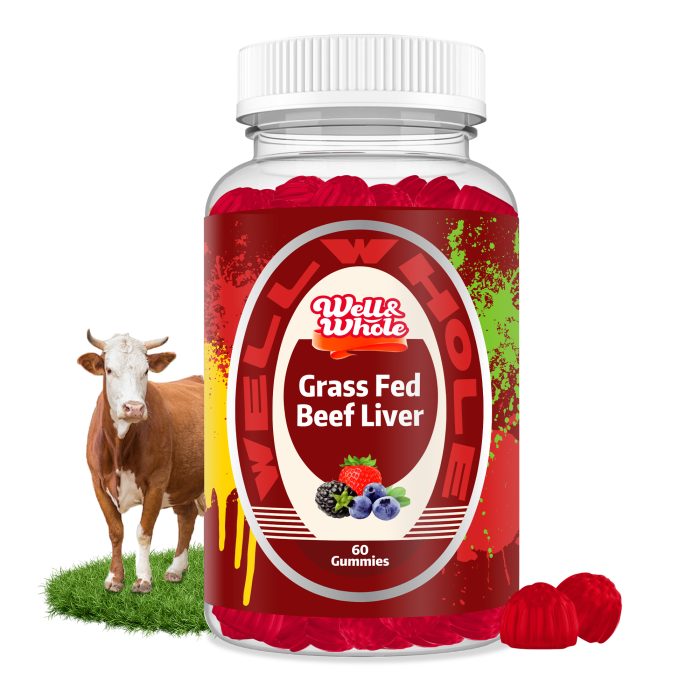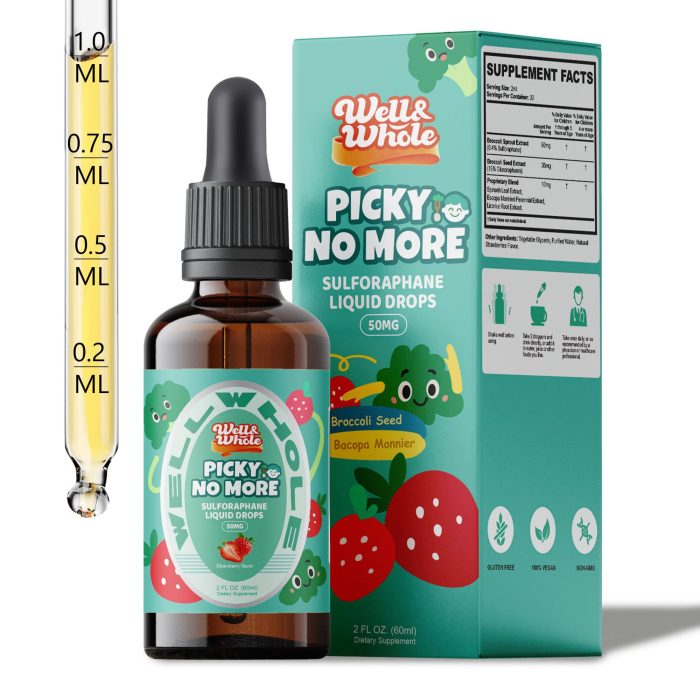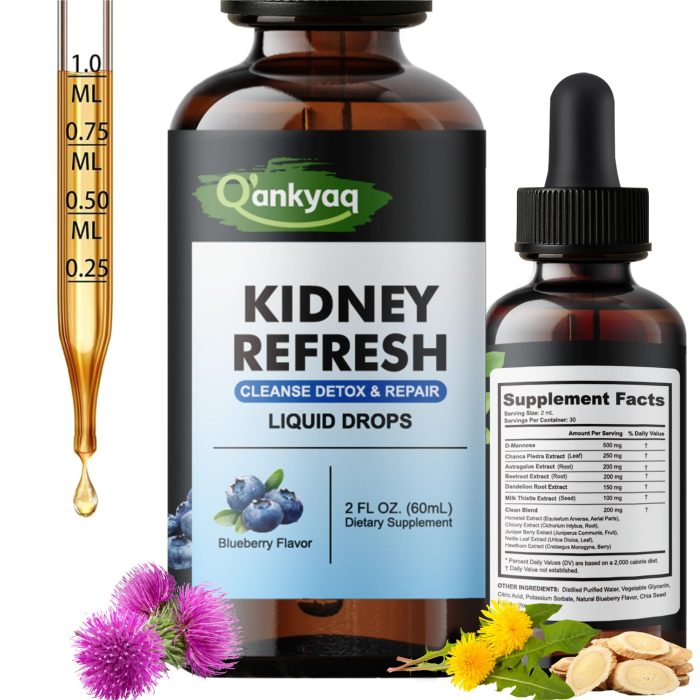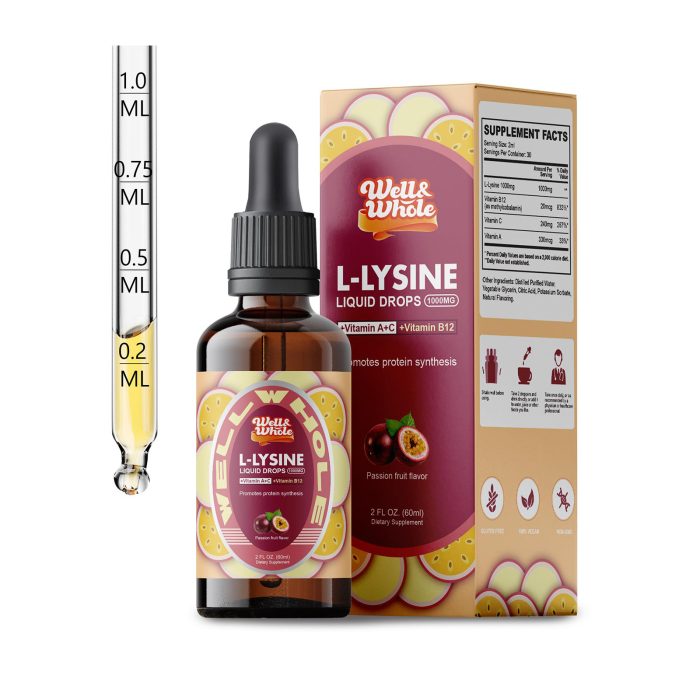What Is L-Lysine and Why Do You Need It?
Have you ever wondered what L-lysine is and why it matters to your health? L-lysine is an essential amino acid, meaning your body can’t produce it on its own. You need to get it from your diet or supplements to stay healthy.
L-lysine plays several important roles in your body:
- Energy production: It helps turn food into energy so you can stay active.
- Calcium absorption: It improves how your body absorbs calcium, supporting strong bones and teeth.
- Hormone and enzyme production: L-lysine is essential for making hormones and enzymes that regulate many bodily functions.
If you don’t get enough L-lysine, you might face risks like fatigue, weakened immunity, or slower recovery. People most vulnerable to deficiency include vegetarians and vegans (because many plant foods have less lysine), older adults, and those under stress or intense physical activity.
Daily needs vary but generally range from 1,000 to 3,000 mg per day for adults. Athletes or those under significant stress may require higher amounts to support muscle repair and overall health.
In short, L-lysine is a small but mighty nutrient — key to energy, bone health, immune function, and much more. Making sure you get enough can boost your well-being in many ways.
Top 10 Evidence-Based Benefits of L-Lysine
L-lysine packs a punch when it comes to health benefits, backed by solid research. Here’s a quick look at its top perks:
| Benefit | What It Does | Notes/Dosage |
|---|---|---|
| Fights Cold Sores & Herpes | Helps reduce outbreaks and healing time | 1,000 mg daily during outbreaks |
| Boosts Immune Health | Supports immune defense, especially during flu or stress | Regular intake recommended |
| Promotes Collagen Production | Aids skin repair and wound healing | Helps maintain firmness and elasticity |
| Enhances Calcium Absorption | Supports strong bones, lowers osteoporosis risk | Works well with vitamin D |
| Reduces Anxiety & Stress | Lowers cortisol, the “stress hormone” | May help improve mood |
| Supports Muscle Recovery | Speeds up healing after workouts | Great for athletes and active people |
| Lowers Blood Pressure & Cholesterol | Helps fat metabolism to improve heart health | Emerging but promising evidence |
| Helps Manage Diabetes Symptoms | May support blood sugar control | Research still developing |
| Improves Mood & Mental Health | Acts as an adjunct therapy for mood disorders | Useful alongside other treatments |
| Additional Perks | Gut health, pain relief, anti-aging effects | Benefits vary among individuals |
For fighting cold sores, consistent lysine intake may reduce outbreaks significantly, with doses around 1,000 mg daily proving effective. During stressful times or flu season, lysine can boost your immune system to keep you resilient.
Lysine’s role in collagen production is vital for skin repair, making it a popular choice for wound healing and aging skin. It also helps your body absorb calcium better, which matters for bone strength and osteoporosis prevention—especially important as we age.
If you deal with anxiety or high-stress days, lysine may help lower cortisol levels, which can calm your nerves naturally. Athletes also benefit from faster muscle recovery and improved performance thanks to lysine’s support in protein synthesis.
Some studies hint that lysine can help lower blood pressure and cholesterol by improving fat metabolism, which is great news for heart health. Meanwhile, emerging research suggests it might assist in managing diabetes symptoms, though more studies are needed.
Lastly, lysine may improve mood and mental health when used alongside other therapies. Plus, it has added benefits like gut health support, pain relief, and anti-aging effects, making it a well-rounded amino acid supplement.
For those interested in boosting both immunity and muscle health, consider pairing lysine with other essential nutrients, such as those you can find in well&whole’s essential amino acids supplements.
Best Food Sources of L-Lysine

L-lysine is found in a variety of foods, but not all sources provide it in the same amount or form that’s easy for your body to use. For the best bioavailability, animal-based foods are top picks. Lean meats like chicken, turkey, and beef, along with fish such as salmon and cod, offer high-quality lysine that your body absorbs well. Eggs and dairy products like cheese and yogurt are also rich sources and excellent if you want to boost your intake naturally.
For those following vegetarian or vegan diets, plant-based sources include legumes (think lentils, chickpeas, and beans), quinoa, nuts, and seeds. However, plant lysine tends to be lower in amount and less bioavailable, so vegetarians and vegans often need to consume larger portions or combine different foods to meet daily needs.
Daily Intake Tips and Lysine Content Comparison
To help you balance your diet, here’s a quick look at lysine content in common foods (per 100g):
| Food Item | Approximate Lysine (mg) |
|---|---|
| Chicken breast | 2,700 |
| Lean beef | 2,600 |
| Salmon | 2,200 |
| Eggs | 900 |
| Milk | 380 |
| Lentils | 900 |
| Quinoa | 600 |
| Almonds | 600 |
Tips for daily intake:
- Include a mix of animal and plant sources for a balanced amino acid profile.
- Vegetarians and vegans may benefit from supplements or fortified foods to meet higher lysine demands.
- Pairing legumes with grains like rice can help maximize amino acid absorption.
For more ways to naturally boost your lysine intake and smart supplementation, check out how to incorporate L-lysine into your diet effectively.
L-Lysine Supplements: Dosage, Forms, and Safety

L-lysine supplements are a popular choice for maintaining daily health and managing occasional cold sores or herpes outbreaks. For general maintenance, a typical daily dose ranges from 500 to 1000 mg. During cold sore flare-ups, doses can increase to 3000 mg per day, often divided into three servings, but always consult a healthcare provider before high dosing.
You’ll find L-lysine in several forms:
- Tablets and Capsules: Convenient and easy to dose, ideal for straightforward supplementation.
- Powders: Great for mixing into drinks, offering flexible dosing and quick absorption.
- Gummies: A tasty, family-friendly option that’s also vegan and gluten-free, perfect if you dislike pills or have kids needing lysine support.
Regarding safety, L-lysine is generally well-tolerated. Side effects are rare but can include stomach upset or diarrhea when taken in high amounts. It may interact with some antibiotics and calcium supplements, so check with your doctor if you’re on medication. People with kidney issues or pregnant and breastfeeding women should consult their healthcare provider before starting supplements.
Those who benefit most from L-lysine supplements include:
- People prone to cold sores or herpes outbreaks.
- Vegetarians and vegans, who might not get enough lysine from food alone.
- Athletes or individuals under chronic stress needing enhanced recovery.
- Older adults aiming to support bone health through better calcium absorption.
For a trusted source of quality L-lysine supplements, you can explore well&whole Nutrition’s range offering effective absorption and vegan options ideal for daily use. Check out their amino acid supplement collection for convenient, safe choices.
Why Choose well&whole Nutrition L-Lysine Gummies?
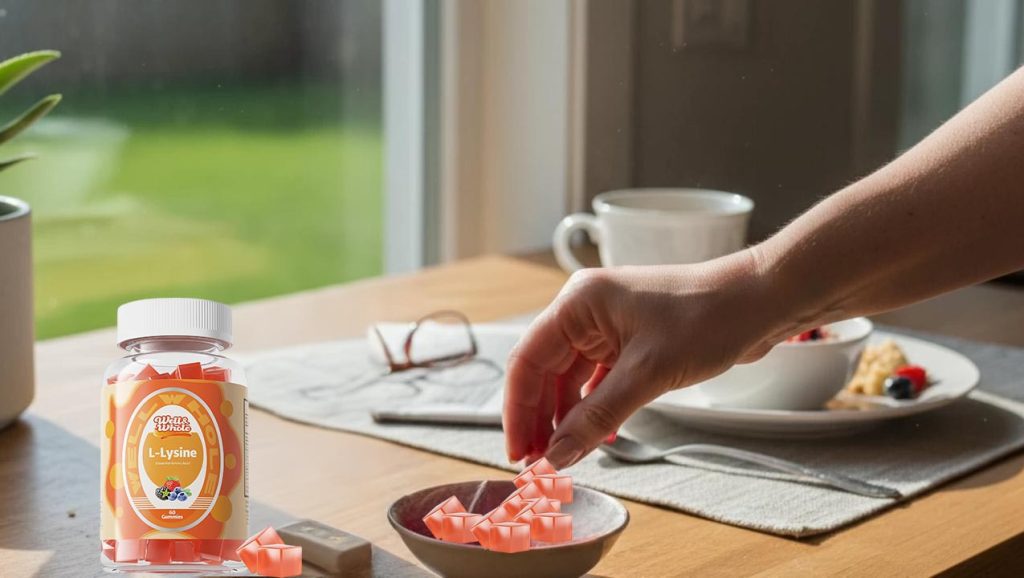
well&whole Nutrition L-Lysine Gummies stand out for several reasons, making them a top pick for anyone needing extra lysine support.
- Vegan & Gluten-Free: Perfect for those with dietary restrictions.
- Great Taste: No chalky aftertaste—fruit-flavored for easy daily use.
- High Absorption: Formulated to ensure your body actually uses the lysine.
- Family-Friendly: Easy to take for kids and adults without the hassle of swallowing pills.
| Feature | well&whole L-Lysine Gummies | Standard Lysine Pills |
|---|---|---|
| Vegan & Gluten-Free | ✔ | Usually No |
| Flavor | Fruit-flavored, pleasant | Often bitter or bland |
| Ease of Use | Chewable, kid-friendly | Swallow whole |
| Absorption | Enhanced formulation | Standard |
For people looking for immune support with a supplement that’s easy and enjoyable to take every day, these gummies fit the bill perfectly. Whether you’re managing cold sores, boosting immunity, or supporting overall health, the well&whole L-Lysine Gummies bring convenience and quality together.
Ready to improve your health with a trusted supplement? Check out well&whole’s best L-Lysine supplement reviews for more detailed info and order your gummies today.
Potential Risks and When to See a Doctor
While L-lysine is generally safe when taken at recommended dosages, overdosing can lead to side effects like stomach pain, diarrhea, and nausea. Excessive lysine intake may also affect kidney function in sensitive individuals, so it’s important not to exceed guidelines.
Pregnant and breastfeeding women should be cautious and consult their healthcare provider before starting L-lysine supplements, as there’s limited research on safety in these groups. People with genetic conditions affecting amino acid metabolism, such as hyperlysinemia, should avoid supplementation unless directed by a doctor.
Overall, research supports many benefits of L-lysine, especially for cold sores, immune support, and bone health, but it’s not a miracle cure. If you experience adverse symptoms or have chronic health issues, check with your healthcare professional to ensure L-lysine is right for you.
For more details on safe lysine use and alternatives, consider exploring the effects and alternatives of L-lysine supplementation.
FAQs About L-Lysine
Q: Can L-lysine help with cold sores?
Yes, L-lysine is well-known for reducing the frequency and severity of cold sores caused by herpes simplex virus. Taking 1,000 mg daily can help prevent outbreaks, while 3,000 mg split doses may shorten healing time during an active flare-up.
Q: What’s the right L-lysine gummies dosage for kids?
For children, a typical dose ranges from 250 to 500 mg per day, depending on their age and reason for use. Always check with a pediatrician before starting supplements for kids.
Q: How much L-lysine should I take for anxiety and stress?
Emerging studies suggest about 1,000 to 3,000 mg daily can help reduce anxiety by lowering cortisol levels. However, it’s best to consult healthcare providers to determine the right dose for your situation.
Q: When is the best time to take L-lysine supplements?
L-lysine is best absorbed on an empty stomach, so take it 30 minutes before or two hours after meals. Consistent timing helps maintain steady levels in your body.
Q: What’s the difference between lysine and arginine?
Lysine and arginine are both essential amino acids, but they have opposing effects on viral infections like herpes. Lysine inhibits replication of the virus, while arginine can promote it. Balancing these amino acids through diet or supplements is key, especially if you’re prone to cold sores.
For more on supporting skin health and repair, consider exploring effective options like collagen and glutathione gummies to complement your L-lysine routine.


